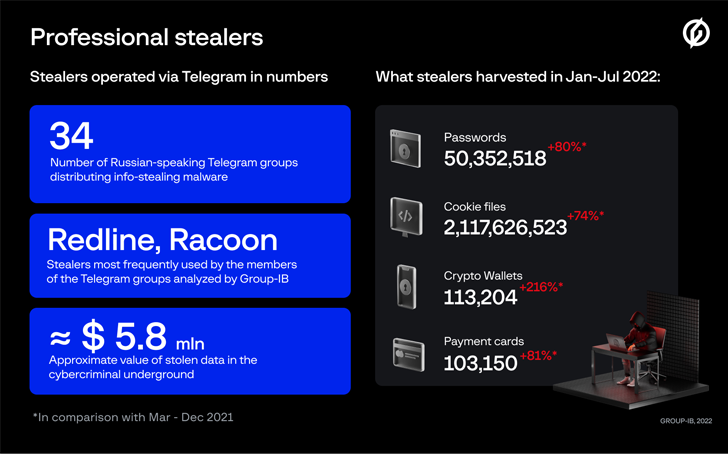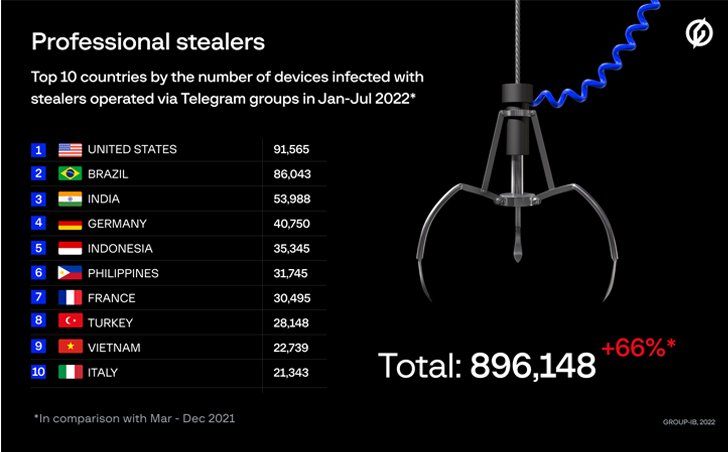As many as 34 Russian-speaking gangs distributing information-stealing malware under the stealer-as-a-service model stole no fewer than 50 million passwords in the first seven months of 2022.
"The underground market value of stolen logs and compromised card details is estimated around $5.8 million," Singapore-headquartered Group-IB said in a report shared with The Hacker News.
Aside from looting passwords, the stealers also harvested 2.11 billion cookie files, 113,204 crypto wallets, and 103,150 payment cards.
A majority of the victims are located in the U.S., followed by Brazil, India, Germany, Indonesia, the Philippines, France, Turkey, Vietnam, and Italy. In total, 890,000 devices in 111 countries were infected during the time frame.
Group-IB said the members of several scam groups who are propagating the information stealers previously participated in the Classiscam operation.
These groups, which are active on Telegram and have around 200 members on average, are hierarchical, consisting of administrators and workers (or traffers), the latter of whom are responsible for driving unsuspecting users to info-stealers like RedLine and Raccoon.
This is achieved by setting up bait websites that impersonate well-known companies and luring victims into downloading malicious files. Links to such websites are, in turn, embedded into YouTube video reviews for popular games and lotteries on social media, or shared directly with NFT artists.
"Administrators usually give workers both RedLine and Racoon in exchange for a share of the stolen data or money," the company said. "Some groups use three stealers at the same time, while others have only one stealer in their arsenal."
Following a successful compromise, the cyber criminals peddle the stolen information on the dark web for monetary gain.
The development highlights the crucial role played by Telegram in facilitating a range of criminal activities, including functioning as a hub for announcing product updates, offering customer support, and exfiltrating data from compromised devices.
The findings also follow a new report from SEKOIA, which disclosed that seven different traffers teams have added an up-and-coming information stealer known as Aurora to their toolset.
"The popularity of schemes involving stealers can be explained by the low entry barrier," Group-IB explained. "Beginners do not need to have advanced technical knowledge as the process is fully automated and the worker's only task is to create a file with a stealer in the Telegram bot and drive traffic to it."
Found this article interesting? Follow THN on Facebook, Twitter and LinkedIn to read more exclusive content we post.
.png)
 2 years ago
117
2 years ago
117 

















 Bengali (Bangladesh) ·
Bengali (Bangladesh) ·  English (United States) ·
English (United States) ·